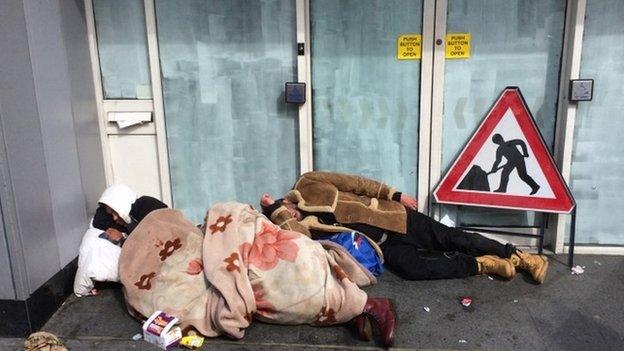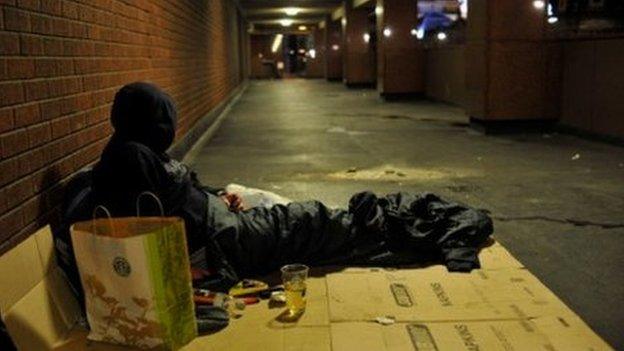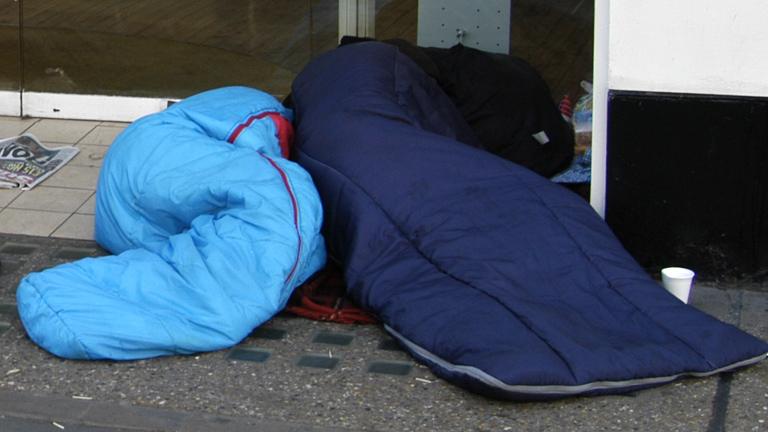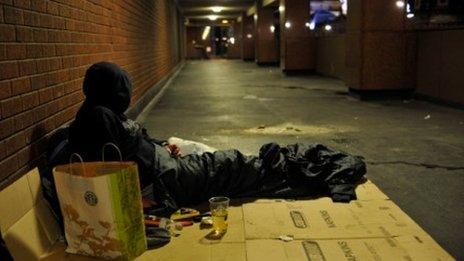Rough sleeping in London increases by 16% in past year
- Published

London Mayor Boris Johnson's promise to eradicate rough sleeping by the end of 2012
Homelessness in the capital has risen by 16% in the past year, compared with a rise of 1% a year earlier, a report has found., external
The rise comes despite London Mayor Boris Johnson's promise to eradicate rough sleeping by the end of 2012.
A total of 7,581 people slept rough during 2014 and 2015, 5,107 of whom were new sleepers, according to the Greater London Authority (GLA).
The charity St Mungo's Broadway said the rise was deeply concerning.
The report also found people were sleeping rough longer-term, as 21% of rough sleepers in 2014-2015 had also been seen in 2013-14.
It said there had been a 20% increase in people returning to rough sleeping in 2014-15 and a 17% increase in new rough sleepers.
It said at 20%, the number of people returning to rough sleeping in 2014-15 had seen the "greatest proportional increase" over 2013-14.
'Worrying' trend
Westminster saw a rise in the number of people sleeping rough in the past year, it said, of 373 people - a 17% increase.
Camden, Lambeth, Tower Hamlets, the City of London and Brent all saw rises of more than 40 rough sleepers, said the GLA.

Camden, Tower Hamlets and the City of London all saw rises of more than 40 rough sleepers
Deputy London Mayor Richard Blakeway said "very few of those people ending up on the streets stay there long-term".
"For those who do stay, we are working closely with London boroughs, voluntary sector organisations, the police and the Home Office to provide the assistance they need to get off the streets and stay off the streets," he said.
Howard Sinclair, chief executive of St Mungo's Broadway, said the problem affected "many different groups".
He said migration from Romania was a "significant driver" in these most recent figures.
"Worryingly, they [these figures] show that the number of people who've previously slept rough and are returning to the streets is rising, this year by 20%," he added.
- Published20 June 2013

- Published26 December 2011

- Published23 December 2011
